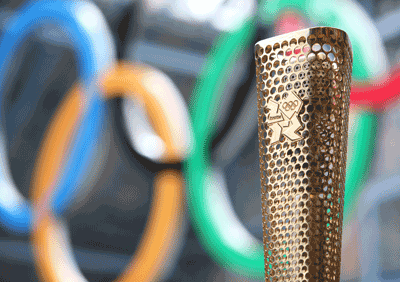London 2012 Olympic Games Going for the Gold
BY NICOLETTE EMMINO
With the London 2012 Olympic Games just 51 days away, what can viewers expect?
Amid the excitement, patriotism, and sportsmanship the Summer Olympics will carry through London in July, participants and viewers alike will be a part of some new enlivening advancements.

During the 2008 Beijing Olympics, one of the most watched events in TV history, viewers witnessed some interesting tech feats:underwater skateboard cameras, rain preventing missiles, and the 8,000-fps camera, just to name a few.
How can London top that?
For starters, Panasonic Corporation of North America and the NBC Sports group have teamed up to bring viewers over 200 hours of 3D Olympic coverage in what will be a first for the Olympic Games.
Panasonic’s 3D production technology, the AG-3dP1 Integrated Twin-Lens 3D Camera Recorder, will make this possible. The AG-3dP1 has a 17-times twin-lens, zoom-lens system that ranges from wide-angle to telephoto in order to adjust to different scenarios. The opening and closing ceremonies, as well as diving and gymnastics, are just some of the events scheduled to be broadcast in 3D. The technology will be available in the U.S. to distributors who carry Olympic coverage on cable and satellite.
For the athletes, technological improvements will aid in effectiveness and accuracy.
Omega, the official timekeeper of the London Olympics 2012, has fashioned a new timekeeping technology. The starting gun at the races will now be combined with a quantum timing system. This system permits race timing to be recorded to the nearest thousandth of a second. With the gun equipped with a quartz oscillator, the gun’s electric current can also distinguish any false starts. ??????????????
The pentathlon, the five-event contest that dates back to the ancient Olympic Games in Greece, will experience an adjustment. In modern day Olympic Games, the pentathlon features a combination of events such as swimming, shooting, fencing, equestrian, and cross-country running. Laser guns will now replace the 4.5-mm air pistol in the shooting portion of the event. Not only are the laser guns a safer alternative, but they will also reduce costs by eliminating the need for cartridges and ammunition.

With all the focus on what’s transpiring inside the arenas, some researchers at the University of Leicester have decided to take a look at the effects of the Olympics on the environment. They plan on using CityScan technology to assess how this event will affect air quality. Sensors will be set up at three locations on the outskirts of the city and will perform an overall scan to detect air quality conditions and further determine how the Olympics will have an effect on pollution as a result of increased auto traffic. The sensors can detect where the nitrogen dioxide accumulates and even how widespread its effects are.
And for those commuting in London via underground subway, Virgin Media has granted free Wi-Fi access in up to 120 stations all summer long in honor of the Olympic Games.
In the race for improved technology, the London 2012 Olympic Games might just get the gold. Let the games begin! ■

Advertisement
Learn more about Electronic Products Magazine





